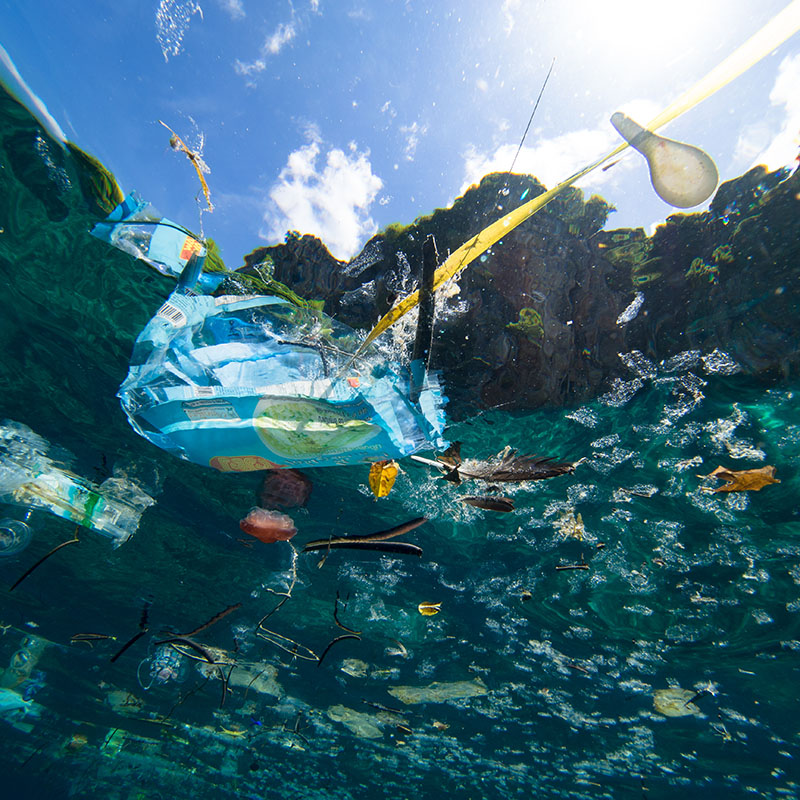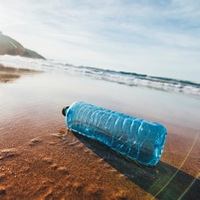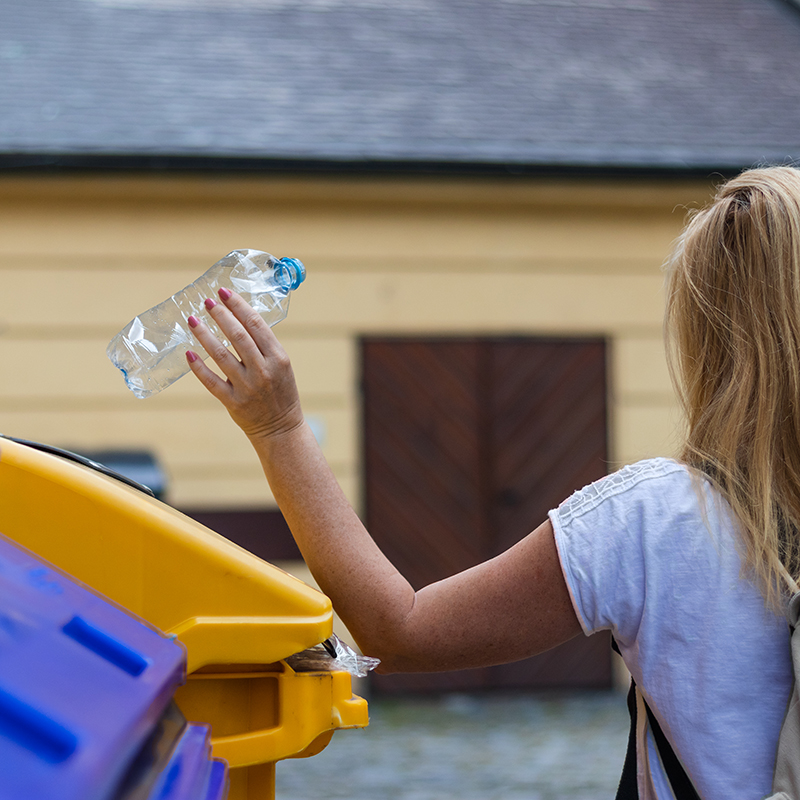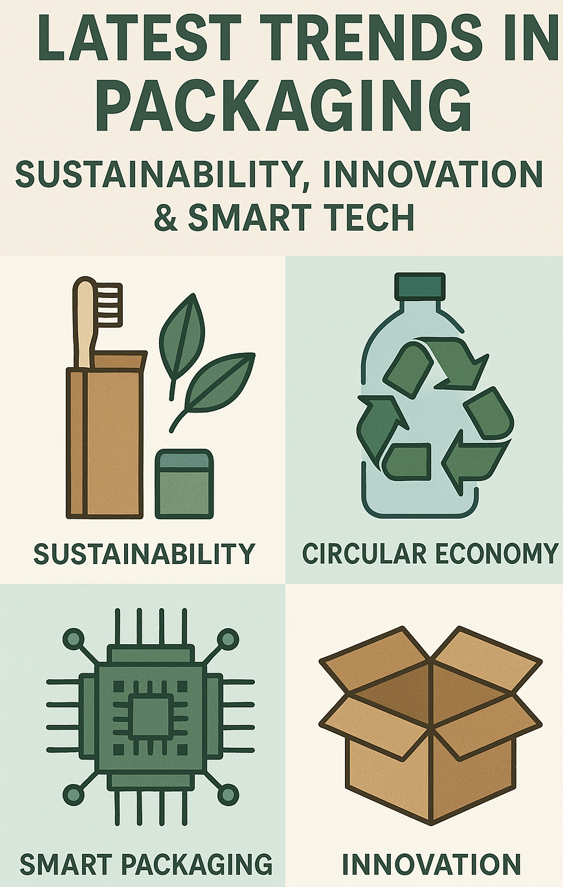


Over 70 financial institutions and businesses have released a statement urging an ambitious international, legally binding global treaty on plastics pollution ahead of the UN Environment Assembly (UNEA) 5.2, held in Nairobi, Kenya, this year.
The signatories, already supporters of WWF’s previous report “The Business Case for a UN Treaty on Plastic Pollution,” include Amcor, Berry, Coca-Cola, Mondelēz International, Mondi, Nestlé, Procter & Gamble, PepsiCo and Unilever.
“A new UN treaty is crucial to set a high common standard of action for all countries to abide by, and to drive the transition to a circular economy for plastics globally and at scale,” reads the statement.
“This [transition] requires governments to align on regulatory measures that cover the whole life cycle of plastics, not limiting the scope of negotiations to address waste management challenges only.”
Andrew Morlet, CEO of the Ellen MacArthur Foundation, says the statement “sends a powerful signal to policymakers that they now have an unprecedented opportunity to turn the tide on plastic pollution.”
Intergovernmental Negotiating Committee
The statement highlights three central issues with plastic pollution globally:
- The issue of plastic pollution is transboundary and leads to significant negative impacts on the global environment, society and economy.
- A holistic, coordinated international response that tackles problems at its source is urgently needed to stop plastic leakage into nature effectively.
- A circular economy for plastics will contribute to tackling climate change and biodiversity loss while bringing positive social and economic impacts.
Given these three considerations, the signatories are urging the formation of an Intergovernmental Negotiating Committee at UNEA 5.2 to develop sets of policy initiatives and goals.
Morlet comments: “Plastic pollution doesn’t stop at borders. It is a global problem that requires businesses and governments to work together on global solutions.”
“Today marks the first time so many leading businesses have come together and called for a legally-binding, robust treaty; one that sets common rules and regulations, establishes a level playing field and creates the conditions needed to deliver coordinated global solutions.”
Policy proposals
Included in the statement’s recommendations is the establishment of upstream and downstream policies, which could keep plastics in the economy and out of the environment and reduce virgin plastic production and usage. These policies would also decouple plastic production from the consumption of fossil resources, it reads.
The committee would also focus on setting a clear direction to align governments, businesses and civil society behind a common understanding of the causes of plastic pollution and a shared approach to address them.
For companies and investors, this clear direction would create a level playing field and prevent a patchwork of disconnected solutions, while setting the right enabling conditions to make a circular economy work in practice and at scale, they argue.
Providing robust governance to ensure countries’ participation and compliance will also be essential, continues the statement. If a committee can ensure a mechanism by which this can happen, it would “facilitate investments to scale innovations, infrastructures, and skills in the countries and industries most in need of international support.”
Critical point
The statement says we are at a “critical point in time to establish an ambitious UN treaty that fosters collaboration for systemic solutions and speeds up the transition to a circular economy globally.”
However, while there is wide-reaching support among activists and experts for a global plastics treaty, many signatory companies are ironically blamed for much of the world’s plastic pollution.
According to Innova Market Insights, 44% of global consumers say FMCG companies contribute significantly to the global plastic pollution crisis, topped only by consumer behavior (64%).
Last year, Break Free from Plastic named Coca-Cola, PepsiCo, Unilever, Nestlé, Procter & Gamble, Mondelēz International, Philip Morris International, Danone, Mars and Colgate-Palmolive as the world’s top ten plastic polluters.
All of these companies have signed the call for a treaty, however. Greenpeace USA Oceans Campaign Director John Hocevar recently told PackagingInsights: “One thing is clear: If the treaty does not significantly reduce plastic production, it will not solve the problem.”
“Greenpeace and other NGOs will be working hard to make sure we do not waste this historic opportunity.”
By Louis Gore-Langton
To contact our editorial team please email us at editorial@cnsmedia.com
We are a leader in responsible global packaging solutions supplying a broad range of rigid and flexible packaging products for the food, beverage, healthcare, home, and personal care and tobacco industries. Flexibles is one of the world's largest suppliers of flexible packaging and folding carton packaging. It has three operating divisions, each manufacturing flexible and film packaging for their respective industries: Flexibles Europe, Middle East & Africa and the Americas, Flexibles Asia Pacific and Global Tobacco Packaging. Rigid Plastics is one of the world's largest producers of polyethylene PET packaging as well as containers using other plastic resins.







